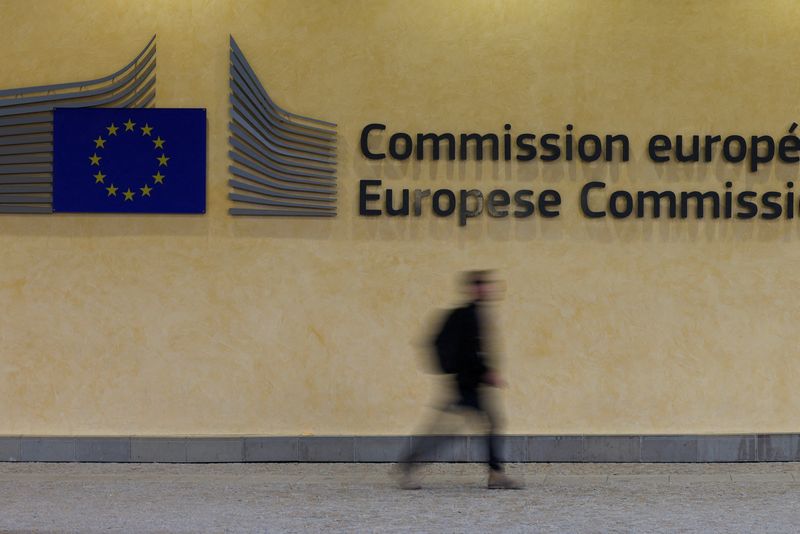By Huw Jones
LONDON (Reuters) - The European Union's financial sector on Monday urged the bloc to delay quick fixes to how asset managers label sustainable investment funds, saying the EU executive should conclude a broader review first to ensure a "holistic" approach.
Since March 2021, asset managers have been applying the Sustainable Finance Disclosure Regulation (SFDR), which aims to bring more rigour into labelling of environmental, social and governance (ESG) funds, and help regulators crack down on greenwashing, or inflated green claims.
However, uncertainty over how to label investment funds has prompted asset managers to downgrade funds, and the bloc's securities, banking and insurance watchdogs last year proposed amendments to SFDR to make the rules easier to apply.
The EU's executive, the European Commission, has yet to approve the proposed regulatory technical standards (RTS), and meanwhile continues with a broader review.
"Our associations are concerned about the lack of coordination between these major review projects, which put investors’ confidence in sustainable investment solutions and the reliability of the EU standards for sustainable disclosures at risk," a group of financial sector industry bodies said in a statement on Monday.
They include the European Banking Federation, asset management body EFAMA, Insurance Europe, Alternative Investment Management Association, and the Association for Financial Markets in Europe.
The two reviews of SFDR should be fully coordinated to guarantee legal certainty, they said.
"Consequently, our associations strongly encourage the European Commission to delay the adoption of the RTS measures... and to reconsider changes to the SFDR holistically."

The European Commission had no comment on the financial sector's statement.
The EU executive is processing the proposals from the EU watchdogs with a view to their adoption, but the outcome of its broader review will be left to a new Commission appointed in the autumn, meaning actual policy changes are unlikely before 2025.